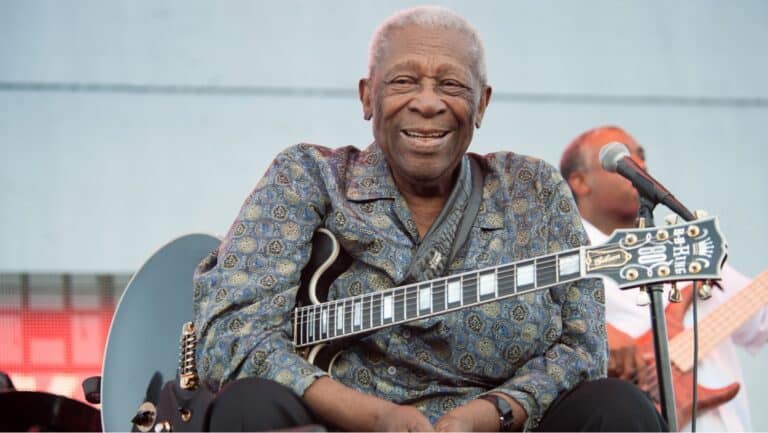8 behaviors men of principle will not engage in
Ever met a guy who just… gets it? Someone whose actions seem to line up perfectly with their words, who you can count on when things get tough? Chances are, you were in the presence of a man of principle.
Now, let’s be clear. This isn’t about being some rigid, perfect dude who never makes a mistake. Far from it. Being a person of principle simply means you have an internal moral compass and consistently choose to follow it, even when it’s inconvenient. It’s when integrity stops being an option and becomes a way of life.
And this stuff matters. A lot. A landmark 2020 study from the National Academy of Sciences found that the single biggest predictor of relationship happiness is “perceived partner commitment.” That’s it. That’s the secret sauce. People are happiest when they feel their partner is reliable, trustworthy, and true to their word—all hallmarks of a principled person.
Ultimately, a man of principle understands his actions define his character, and there are some lines he simply won’t cross.
He won’t shift blame or evade accountability

This is the absolute bedrock of character: owning your actions, good and bad. A man of principle doesn’t play the blame game when things go south. He takes responsibility because he knows it’s the only path to growth and trust.
Let’s get into the psychology of it. Researcher and author Brené Brown puts it perfectly. She says blame is “simply the discharging of discomfort and pain.” It’s a quick, easy way to offload those yucky feelings onto someone else. A man with a strong character has the emotional maturity to sit with that discomfort instead of making it someone else’s problem.
He won’t disrespect personal boundaries
A man of principle gets that boundaries aren’t walls; they’re a sign of mutual respect. He understands they are the “invisible lines that define where one person’s physical and emotional space ends and another’s begins,” and he sees them as crucial for any healthy connection.
And let’s be real, this is tough for a lot of people. A survey by the American Psychological Association found that a whopping 60% of people struggle to set and maintain personal boundaries in their relationships. Another 2022 survey found that 58% of Americans struggle to simply say “no” to others.
So, when a man respects your boundaries, it’s a big deal. It shows he’s operating from a place of security, not a need to control you. People who constantly push your limits are often manipulative or deeply insecure, seeking weak spots they can exploit to gain power.
He won’t engage in gossip or slander
There’s a huge difference between sharing news and tearing someone down, and a man of principle lives in that distinction. He knows his words have power, and he refuses to use them to assassinate someone’s character behind their back.
A man of principle doesn’t need to diminish others to feel good about himself. He understands that talk is a form of social currency, and he refuses to trade in the low-value coin of gossip. He operates in an economy of trust, directness, and respect.
He won’t make promises he can’t keep

To a man of principle, his word is his bond. He understands that a promise is a sacred commitment, and breaking it is a fundamental breach of trust that can silently poison a relationship.
Here’s a fascinating twist from psychology: research published in the Journal of Personality and Social Psychology shows that people who have the most positive and loving feelings for their partners tend to make the biggest promises. But here’s the catch—the key to keeping a promise isn’t the intensity of your feelings. It’s your level of self-discipline and conscientiousness.
A man of principle bridges that gap. He doesn’t let a momentary surge of emotion lead him to make a commitment he can’t honor. His integrity is found in the pause—that moment of self-reflection where he honestly assesses if he can follow through before he gives his word.
He won’t manipulate or deceive others

Manipulation is about one thing: control. It’s using guilt, deception, or other shady tactics to make someone do what you want, and a man of principle wants no part of it. He values honesty and respects the autonomy of others far too much.
This behavior is disturbingly common. The National Intimate Partner and Sexual Violence Survey found that nearly half of all women (48.4%) and men (48.8%) in the U.S. have experienced psychological aggression by an intimate partner—a category that is filled with manipulative behaviors.
A man of principle understands that manipulation isn’t just a bad habit; it fundamentally robs another person of their ability to make a free and informed choice. It treats them as a tool to get something, not as a person to be respected.
He won’t belittle or act with contempt
Criticism is one thing; contempt is another beast entirely. Belittling and contempt are direct attacks on a person’s worth. They’re designed to make someone feel small, inadequate, and fundamentally “less than” you.
This is the behavior that Dr. John Gottman’s four decades of research identified as the single greatest predictor of divorce. He calls it “sulfuric acid for love” because of how quickly and completely it dissolves the bonds of a relationship.
Contempt shows up as sarcasm, condescending tones, eye-rolling, hostile humor, or name-calling. It often stems from a place of superiority, masking deep-seated insecurities in the person dishing it out. It’s not just a communication problem; it’s a character problem. A man of principle can get angry or frustrated, but he will not cross the line into contempt, because doing so means abandoning the partnership itself.
He won’t avoid difficult but necessary conversations
A man of principle knows that real growth happens outside the comfort zone. He doesn’t run from tough conversations about feelings, finances, or the future. He leans into them because he’s more committed to the health of the relationship than he is to his own short-term comfort.
He won’t let his ego drive his decisions
This is the final boss of character development: mastering the ego. A man of principle has confidence, but he doesn’t let it curdle into arrogance. He can separate his identity from his position, which means he’s capable of admitting when he’s wrong. His choices are guided by his values, not by an insatiable need to prove he’s the smartest guy in the room.
Key Takeaway
A man of principle isn’t born; he’s built through conscious, daily choices.
- He chooses accountability over blame.
- He chooses respect over violation.
- He chooses integrity over gossip.
- He chooses reliability over empty promises.
- He chooses honesty over manipulation.
- He chooses partnership over contempt.
- He chooses courage over avoidance.
- He chooses humility over ego.
Ultimately, these aren’t just behaviors he avoids; they are active decisions that define his character and build a life of trust and respect.
Science Tells Us What To Expect As We Age: Strategies for Thriving in Later Life

Science Tells Us What To Expect As We Age: Strategies for Thriving in Later Life
How does aging affect our bodies and minds, and how can we adapt to those differences? These are questions that pertain to us all. Aging gradually alters people over decades, a long period shaped by individuals’ economic and social circumstances, their behaviors, their neighborhoods, and other factors. Also, while people experience common physiological issues in later life, they don’t follow a well-charted, developmentally predetermined path. Let’s take a look at what science has told us to expect.
Why Supersonic Flights Vanished From Our Skies

Why Supersonic Flights Vanished From Our Skies
Every year on August 19th, National Aviation Day celebrates the marvels of flight and the pioneers who made it possible. But as we look to the skies, one question lingers. If we could fly from New York to London in under three and a half hours back in the 1970s, why are we still taking nearly seven today? Supersonic travel was once a thrilling reality. So, what grounded it?







